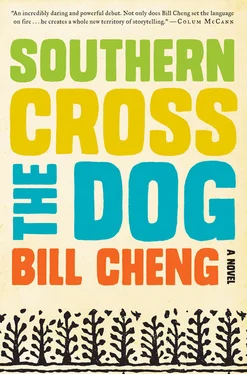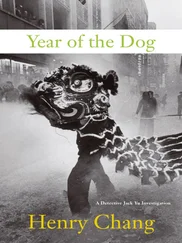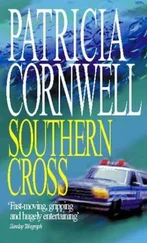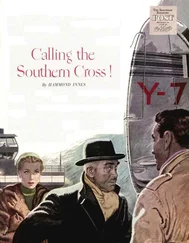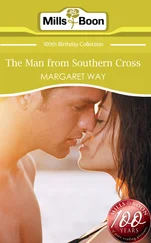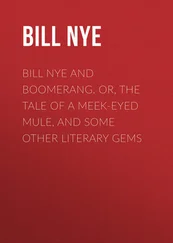Thank you, he said.

BY MORNING, IT LOOKED LIKE the worst had passed. Robert woke to the crackle of fat sizzling. He looked out into the kitchen. Dora was by the stove, making breakfast. The color had come back to her cheeks, her left foot tucked behind her right as she bounced her heel on the floor. G.D. was at the table, smiling, his hair pushed down from where it lay on the pillow. He look tired but happy. He lifted up a finger in greeting.
But Robert was looking at Dora. The glow on her face, fresh like the earth after a rain. He could not stop staring at her. She smacked the pan down hard on the stove.
Stop it, she said. You’ll make me blush.
And for a time, there was no more screaming, no more crying. They slept deep and easy in the house. One night, G.D. called them in from the other room. He showed them the bottles he’d stole from work.
We need to celebrate, he said.
Dora squealed and Robert examined the bottle. What are we celebrating? he asked.
G.D. clapped him on the arm, his lips spread into a grin.
Life! He laughed and hugged them close. Strange and unexpected and wonderful life!
So they drank, them three, whipping their necks back, laughing and swallowing whiskey, catching the runoff on their fingers, holding the wet at the first and second knuckles, then sliding their fingers into each other’s mouths. They were low-flying birds, inches from the ground, beating the dust, trying to keep level against the rising floor. They sang and swore. They moved the furniture and they danced each other, beat their feet against the aching wood. They were bodies, twirling, leaping, launching across the room. They turned the music so loud sometimes you couldn’t hear it at all except for the flare of horns, the cymbals crashing.
Then come dark they fled the house and took off to the hills to pick strange nameless blue flowers, twining them into chains, pulling the petals from the hearts. Loves me, loves me not. They brought them home and made them into capes and garlands and crowns. Kiss me, G.D. had said. And she did. Now kiss him. Kiss him like a mother, our little boy. And she laughed and took Robert by the face and put a tongue in his mouth. And she reached where he wished she would, and then let him do the same, and they all had a laugh, G.D. louder than them both put together. It was a game, just another game, with G.D. again leading them on. She was their Sally Water again. They watched her part her hair, run her hand along the line of her neck, feeling the deep invisible currents of her body. Shake it to the east. Shake it to the west. And the thought came to them, separately, in that moment, that no one has to suffer.
ROBERT WOKE, HIS HEAD FULL of lead and aching. For a long time, he was not sure what it was he was seeing. A long black cape swept and danced like a flame, drumming the air, stretching out like a net. He watched it, not moving. There was fire in his chest. At the last moment, it pulled away. He felt wet on his face. It was drizzling, the droplets cool against his brow. With some effort, he sat himself up. They were crows, he realized, and he had fallen asleep in the field behind the house.
He touched his throbbing forehead and groaned. He could not remember how he had gotten here.
There was a noise. The sound of a girl laughing. The hair prickled on his arm. Robert sat up. He could see Dora in the distance. She was naked, her lithe brown body launching back and forth at the edge of the field. Her clothes were scattered around her. Lightning flashed. She let out a loud whoop and danced naked through the mud, her arms up, shouting in bright frightening joy.
Robert took off after her and led her back into the house. She was wet and shivering, her hair hanging in front of her face in dirty clumps. He tore the sheet from her mattress, toppling the mess on top, and wrapped her tight to get her dry. Then he lit the stove and sat her in front of it. Don’t move, he said. Just stay right here. She followed him with her eyes but said nothing. He set on the kettle and then he withdrew from the kitchen to hunt up some dry clothes. When he returned, he paused at the door frame, and from there he watched her, his arms resting against the jamb.
Dora? he said.
She turned and looked at him.
He showed her the clothes and helped her into them. She did not resist. Then she sat back down near the glow of the flame.
He waited for G.D. to come home. He’d give him that at least. They’d shake hands and Robert would go again on his way. There was no use his being here, raking through these spent ashes. He stared at the trembling hull, the sheet cinched tight around her, her head weaving for want of sleep. What happened to you? he wanted to ask. But he knew she couldn’t tell him, couldn’t reach into that black and unknown depth inside her. Her head drooped, and slowly she fell away into sleep.
When the kettle began to whistle, he took it off the stove and poured the water into a cracked mug. She was still asleep so he drank it himself. He did not realize how cold he’d become.
Hours passed and the day went to night — the silver sky sucked down into the horizon. Still no G.D. He patted Dora gently on the hand and woke her up. Let’s go, he said, as he helped her to her bed. He laid her down and put his hand against her burning brow.
Dora looked up at him from underneath the blankets, sweat beading her forehead, her expression soft.
She whispered something. Robert couldn’t hear what. He leaned in closer and she slipped her tongue into his mouth.
He pulled away in shock. The taste was sour and rank. She started to laugh, then broke into a fit of coughing. Then she turned over and fell again to sleep.

ROBERT SEARCHED UP AND DOWN the road for him, north to the old field where the plantation house sat squalid and decaying in the distance, then south again, out past the grove of yellow poplars, into Anguilla. It was dusk, and the last of the day’s light stretched itself out in a band before the horizon. By the time he made his way to the juke house, the crowd had already packed themselves in. Chairs and tables were stacked up against the walls. There was a band in the house and they roared their music, stamped their feet. Folks were dancing, scraping their shoes against the floorboards, swinging their arms. Robert sat down at the counter and tried to get the barman’s attention.
The man tore himself away from a young woman at the other end of the bar. He walked over slowly, slapping his towel in his hand.
You seen G.D.?
You Robert? the barman said.
Yes.
Just a second.
The barman stepped away to the other end of the bar.
The band finished their number and the dancers made their way back to their seats. The air was thick with smoke and Robert was finding it hard to breathe. Robert’s arms were shaking and his heart was beating and his thoughts tattooed images in his brain — of G.D., of men with horses. The barman came back with a glass of something brown and dark in one hand and a slip of paper in the other. The paper was folded neatly into a square. In an uneven hand, his name had been written across it.
G.D. told me if I saw you, I was to give you this note and this here drink.
The barman set them down in front of him.
Cheers, the barman said. He rapped the counter with his knuckles and moved back to the corner.
Robert grabbed the drink and took in a mouthful. It was worse than piss but he swallowed it down. The acid bubbled in his gut. For the longest time he stared at his own name, not touching the note. He did not need to, he decided. He knew already what it said. Outside, moths were crashing around the windows. He drank down the rest of the glass, this time slower. There was hardly any sting left and he let it dam in his mouth, then all down his throat. He breathed deeply, felt the air tear on his teeth. It was full dark now and there were owls somewhere, their calls multiplying endlessly. Through the window, he could see the moon wasn’t but a sliver, like the sky was torn and behind it stretched some brighter canvas.
Читать дальше
